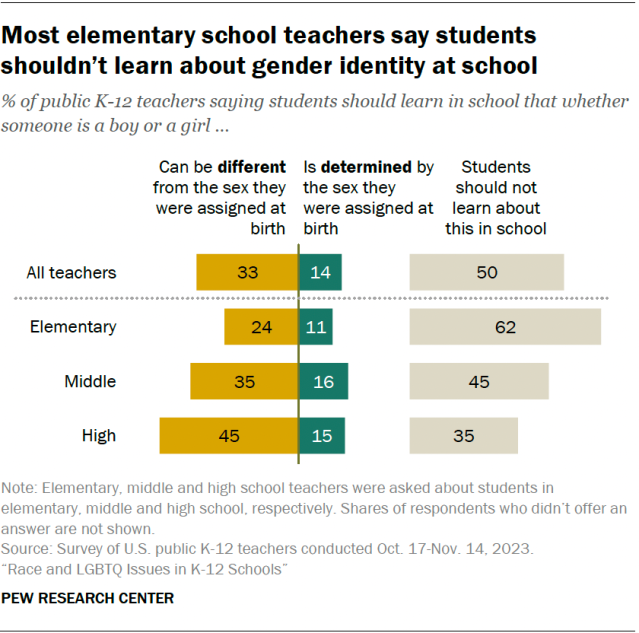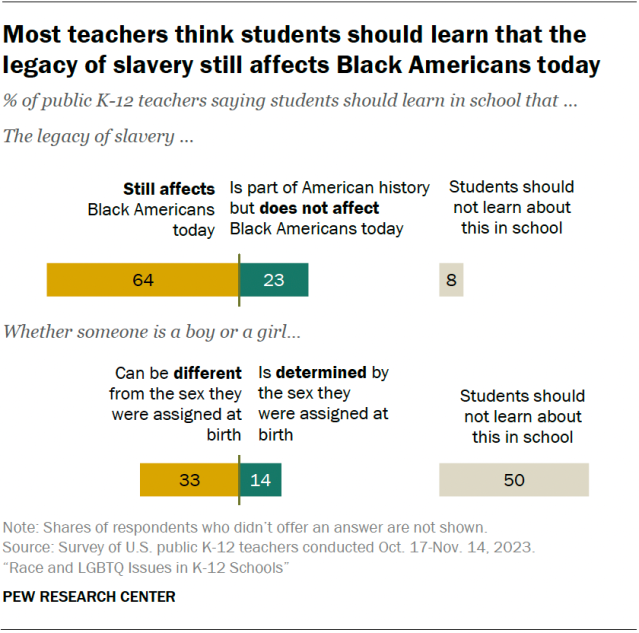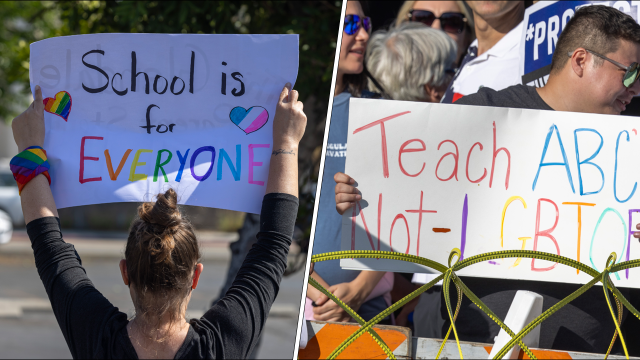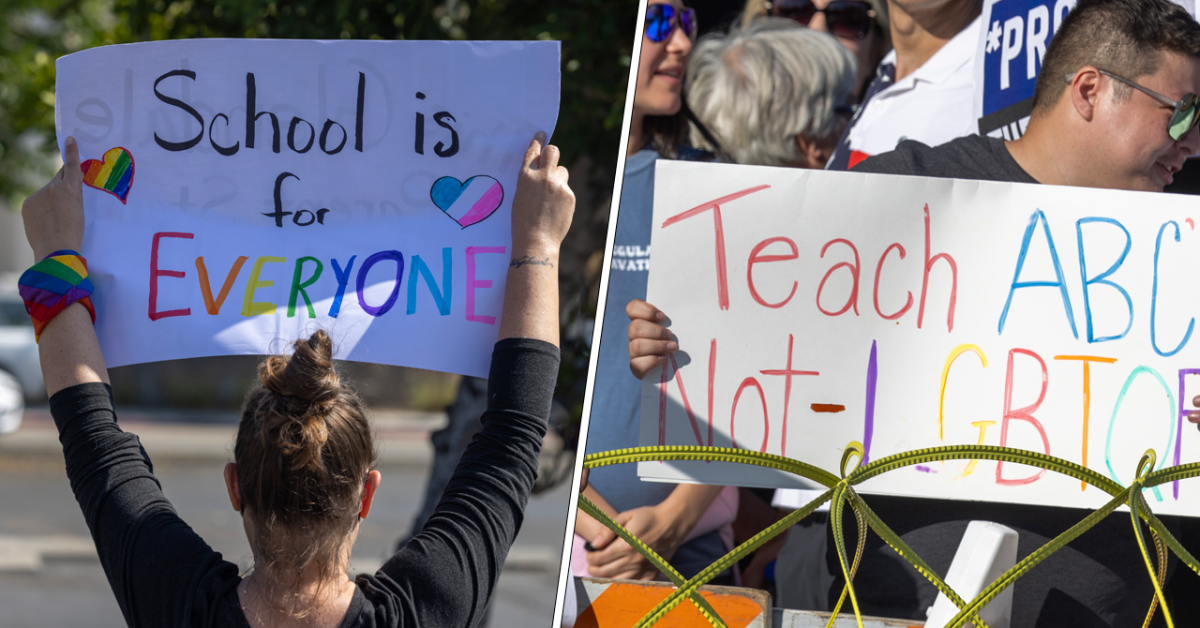
Schools nationwide have been at the center of culture wars regarding restrictions on education and programs relating to race, gender, and sexual orientation. In a new survey conducted by Pew Research Center, public K-12 teachers said that 41% of these debates have had a negative impact on their ability to do their job. The majority (60%) of the teachers surveyed say parents should not be able to opt out of learning about racism or racial inequality in school even if it conflicts with parent beliefs, while only 34% believe that students should be allowed to opt out of these topics. In contrast, a smaller majority (23%) believes that students should learn that slavery is part of American history but no longer affects the position of Black people in American society. About 14% said they shouldn't have any influence on this topic at all.








